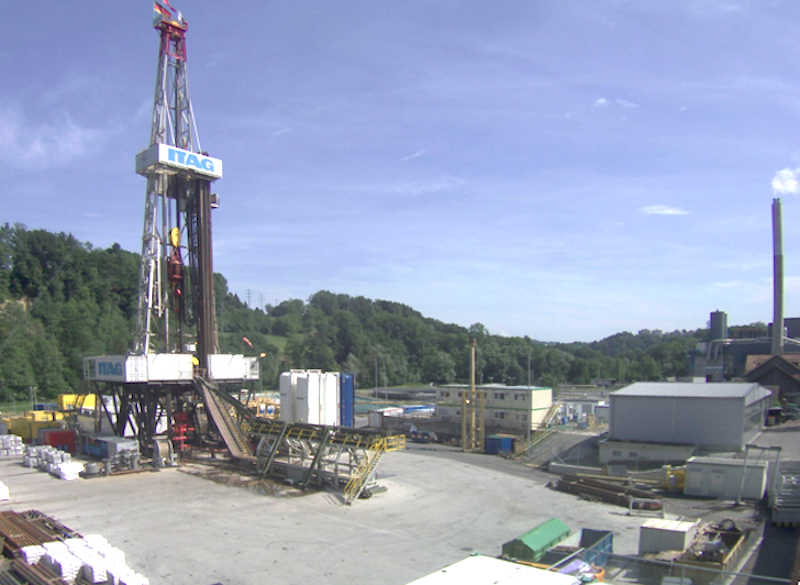As part of new research, tests to be conducted on geothermal well in St. Gallen, Switzerland
As part of a European research program, 23 European research partners from science, industry and the public sector are going to conduct tests on the well drilled for the failed geothermal project in St. Gallen, Switzerland.
Local news report this morning, that live is returning to the site of the failed geothermal project in St. Gallen, Switzerland, as tests are being carried out on the geothermal well that was drilled back then.
Next week, as part of an EU research project, borehole measurements will take place. The aim is to analyze the condition of the installed pipes.
The St. Gallen Geothermal Project was the largest in Switzerland so far. It was considered an internationally important pilot project for geothermal use in non-volcanic underground. After more than four months of drilling, in which the machines had eaten to a depth of 4,450 meters in the Sittertobel, the shock followed: on 20 July 2013, the earth shook, triggered by the work in the borehole. The magnitude 3.5 quake marked the end of the ambitious project.
Also, the natural gas, which was found rather surprising in the borehole, was not used. The city did not find investors for a gas extraction. At the beginning of 2015, the City Council approved a supplementary loan of CHF 36 million (around $37m) and wrote off the costs of the project. As part of a risk cover, CHF 18 million were paid by the federal government of Switzerland.
No risk for underground
The St. Gallen municipal utilities are now partners in an EU research program lasting until August 2020 with 23 European partners from science, industry and the public sector. The project determines the environmental impact of geothermal energy (including geothermal energy) on the subsoil, tests new measurement technologies and collects environmentally relevant data.
The St. Gallen municipal utilities are supporting the project by providing the borehole for field tests and previously collected measurement data, as stated in the announcement by the city of St. Gallen on Thursday. In the measurements of 28 and 29 August, there is no interference with the gas-water deposit. “The tests pose no risks for the population or the underground of the city of St. Gallen,” it says. The aim is to analyze the current state of the installed pipes in the borehole over the entire length.
Borehole remains open
For their participation, the St. Gallen municipal utilities received financial compensation and benefited from exchanges with European specialists for possible alternative use of the borehole. In 2015, the city council of St. Gallen had decided to keep the borehole temporarily closed until alternative uses had been tested.
The canton of St. Gallen has recently extended the construction permit for the well site by ten years. If no alternative use possibility opens up within this period, the well will be definitely closed by 2029.
Source: Bluewin


















